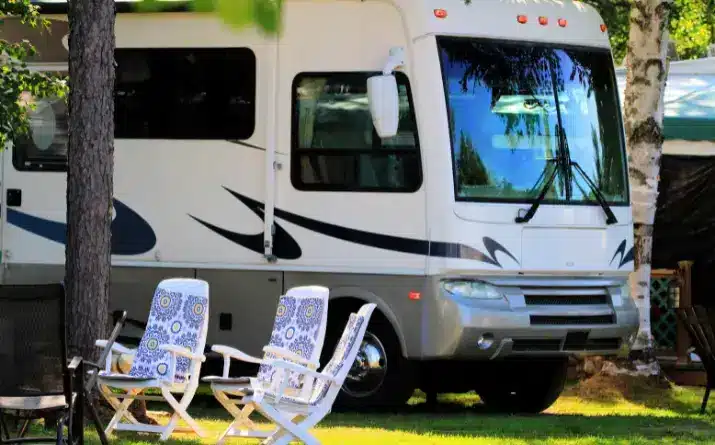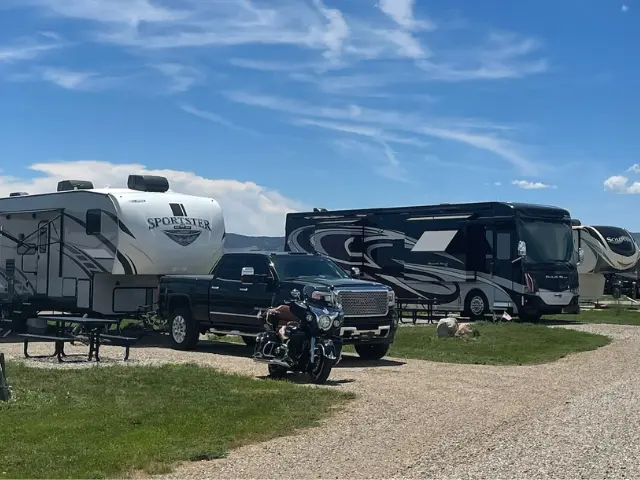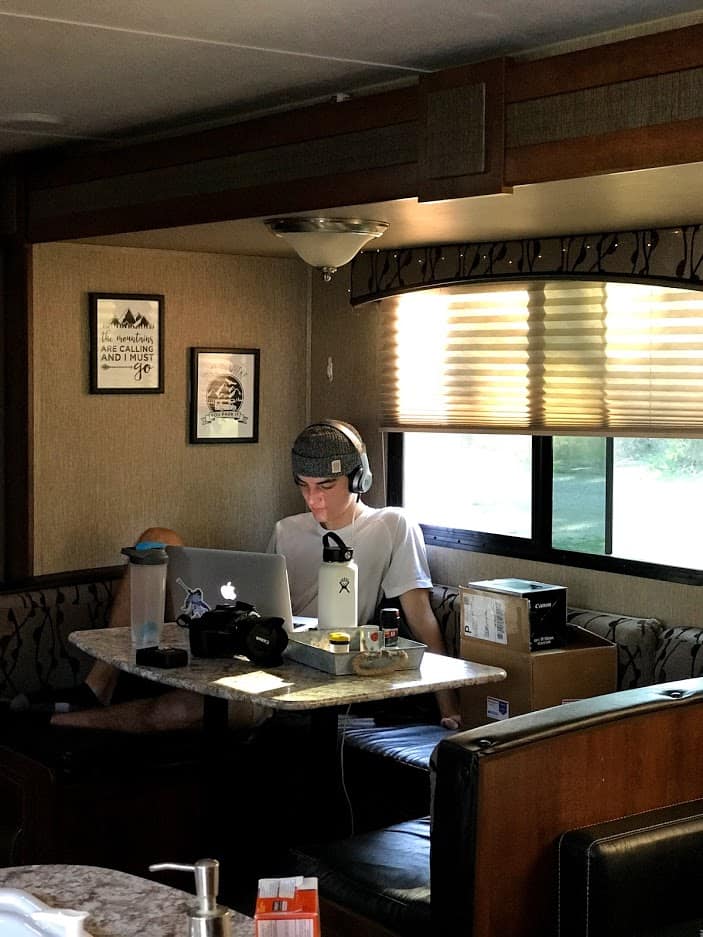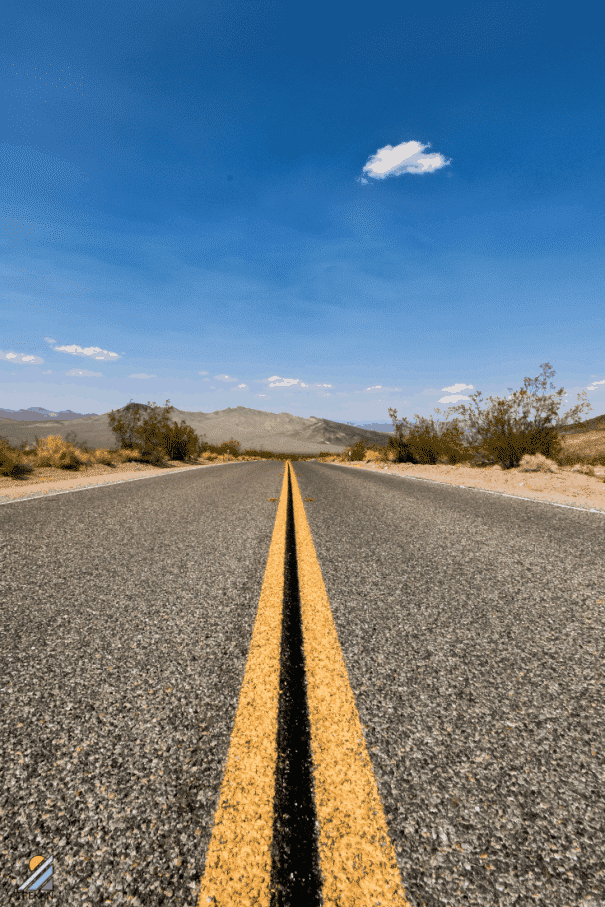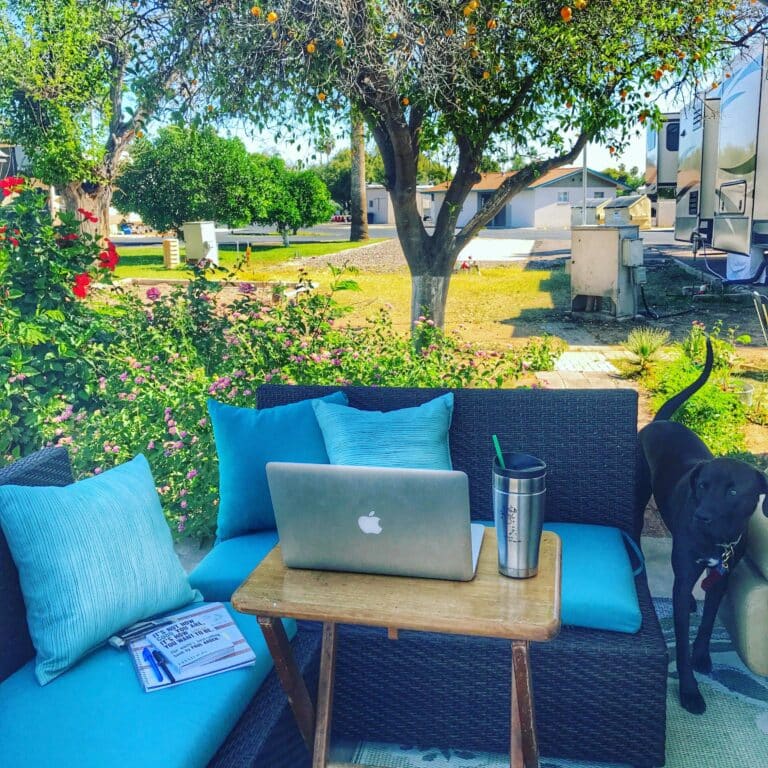How Full-Time Travelers Stay Sane in RV and Van Life
Full-time travel is probably one of the most romanticized lifestyles imaginable. The endless vistas and allure of the open road.
You can go anywhere you want and spend your time the way you want. It’s the ultimate freedom, with a side of adventure and a dash of minimalism.
While all of those things can be true—depending on your work situation and how you travel—being a nomad has its challenges.
While we’d never dissuade anyone from hitting the road full-time if that’s what they want, the lifestyle isn’t for everyone.
Among other challenges, like unexpected breakdowns and general safety concerns on the road, RV and van life can strain your mental health. You might spend a lot of time alone, disconnected from the kind of community you’d have if you lived in one place and could form local friendships.
Parents and kids alike might have a hard time making friends while “just passing through,” and the constant newness can actually wear you down after a while. Not to mention the difficulties of living in a tiny space.
In this post, we’ll explore practical strategies to improve your emotional well-being on the road, including knowing when to hang up your keys and stay put for a while.
Mental Health Challenges for Full-Time Travelers
Loneliness
Probably the biggest challenge most full-time travelers face is a classic part of the human condition: loneliness.
Whether traveling solo or as part of a couple or a family, social interactions outside your RV can be limited, and that gets lonely after a while.
Not only are you moving around too often to form strong bonds with new friends—life on the road can also make it harder to maintain strong connections with your existing network back home.
Decision Fatigue
The constant uncertainty of life on the road can also get wearing. Here is a shortlist of things you’re just never sure about when you’re living in an RV or van:
You get the idea. There’s almost always a lot you don’t know, and by the time you learn, you’re probably moving on to the next stop.
Financial Strain
Some of this unpredictability can also translate into financial stress. It’s a well-known fact that RVs essentially experience an earthquake every time you move them, and most manufacturers don’t build these rigs for full-time living.
The upshot is that stuff breaks. A LOT. You never know exactly when or where it will happen, but big-ticket items will break and you’ll be on the hook to fix them far more often than you would be in a house.
Lack of Routine
Then there’s the lack of a stable routine and structure. Depending on who you are, this might actually rank in the “pro” column. But, most of us like to have some kind of a daily routine to keep our mental health in check.
Activities like exercise or cooking healthy meals are good for our overall health—mental health included—and things can get wobbly when we don’t have a predictable way to build those things in.
Balance
Work-life balance can also be trickier to maintain when your home and your vehicle are one and the same. If you work digitally, you’re always at work, so it can be hard to power down for the night without a strict “clocking off” routine like you’d get when leaving an office.
Health Insurance
Finally, health insurance is a trickier beast if you aren’t stationary. Depending on your insurance, getting coverage outside the state where you’re a resident can be a challenge.
If your insurance isn’t getting in the way, it’s much harder to revisit the same healthcare providers and have consistent doctors unless you can return to the same place for your annual exam.
Accessing therapy and other mental health services or refilling prescription meds are also more difficult when you’re always on the move. (Therapists are licensed by state, so they usually can’t treat you if you’ve crossed state lines.)
This post offers general tips and stories based on real life, personal experiences living full-time in an RV. Trekkn does not offer healthcare advice. Always consult your physician for individual medical, mental, and healthcare advice. Happy travels!
Building Your “Mental Health Toolkit”
These challenges came to a head for me recently when I found myself unexpectedly broken down—yet again—in a tiny town 2,000 miles from everyone I know.
I went through all five stages of grief before finally accepting my fate and realizing that, until I could arrange for a very specific repair, I’d have to settle in and find a way to enjoy my extended stay.
I’m not a mental health expert by any stretch of the imagination, so take this advice with a grain of salt. But after a lot of trial and error, here’s what’s consistently worked for me during my five years on the road:
Establish a Routine
Create daily habits that support your health, even if your exact schedule is unpredictable.
For instance, maybe you meditate or go for a walk first thing every morning. Or maybe you clock off every day by 6 p.m. so you can enjoy the local brewery scene without drowning in work.
(During my first year on the road, I basically moved to different places and then never left my RV except to move again. Don’t be like me.)
As a bonus, pets thrive on routine. So if you have pets with you, they’ll love little daily habits that help them stay grounded, even if you’re on the move.
Try to keep these routines consistent, even on travel days—especially your routines around exercise. Moving your body instantly affects your mood, especially if you’re facing a long drive day.
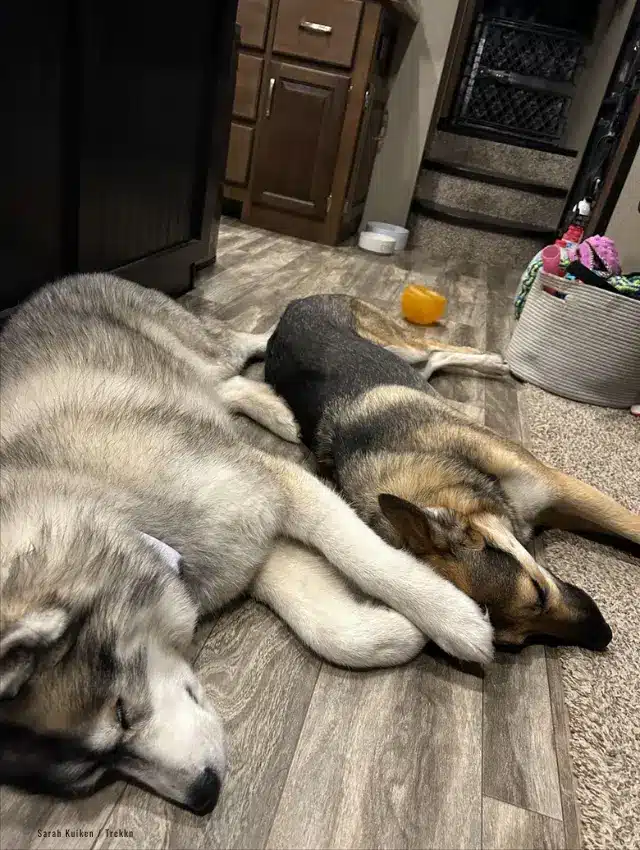
Stay Connected
Find creative ways to stay connected to family and friends while you’re on the road. With loved ones back home, this might look like active text threads or weekly video chats.
But don’t neglect opportunities to meet new people and connect in person. You can always meet locals at a local brewery or coffee shop—and you can often bring your dog, too!
You can also explicitly meet other travelers by attending meetups or RV-specific gatherings. I’ve met my “road family” through multiple RV groups, including the Escapees RV Club (specifically Xscapers) and Harvest Hosts.
You can also join larger, unpaid events like the Rubber Tramp Rendezvous or Skooliepalooza.
Between real-life hangs, Facebook groups have also been a great way to stay connected with my extended community. There are hundreds of groups out there for nomads, so find one that fits your vibe.
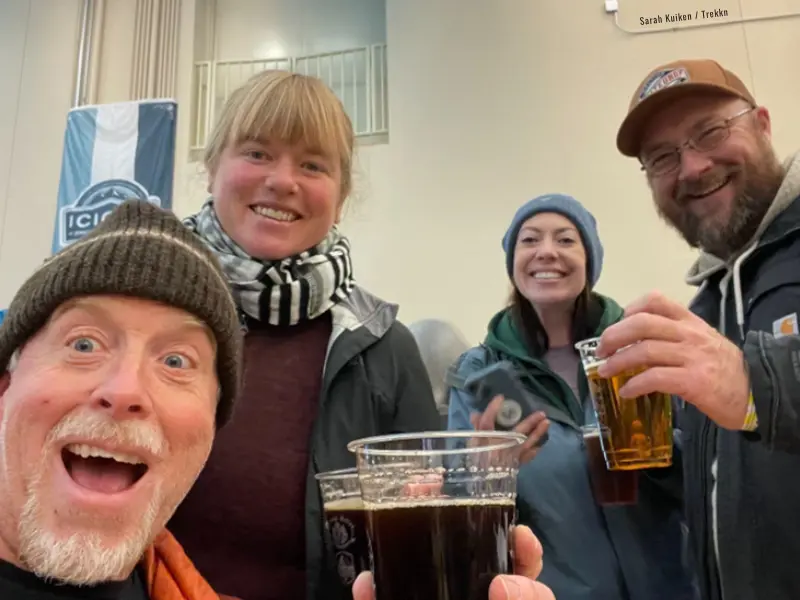
Self-Care
As much as I kind of hate the phrase “self-care,” there’s no better way to say “take care of yourself.” As a naturally lazy person, it’s easy for me to let my health slide to last place on my priority list.
That’s especially true because full-time travel keeps you busy. There’s no shortage of projects and errands to handle on top of work, and then you want to actually enjoy the places you’re visiting.
But a huge part of staying sane on the road is taking care of yourself, whatever that means for you. Physical exercise, meditation, journaling, eating healthfully, staying hydrated, sleeping well—all of this is critical for keeping you healthy and active enough to enjoy your time on the road.
Nature Therapy
While we’re on the subject, this feels like a great spot to plug “nature therapy”—the simple act of getting outside and enjoying nature while you travel.
It’s easy to take beautiful places for granted, so ground yourself in a spot and really soak in your surroundings whenever you can.
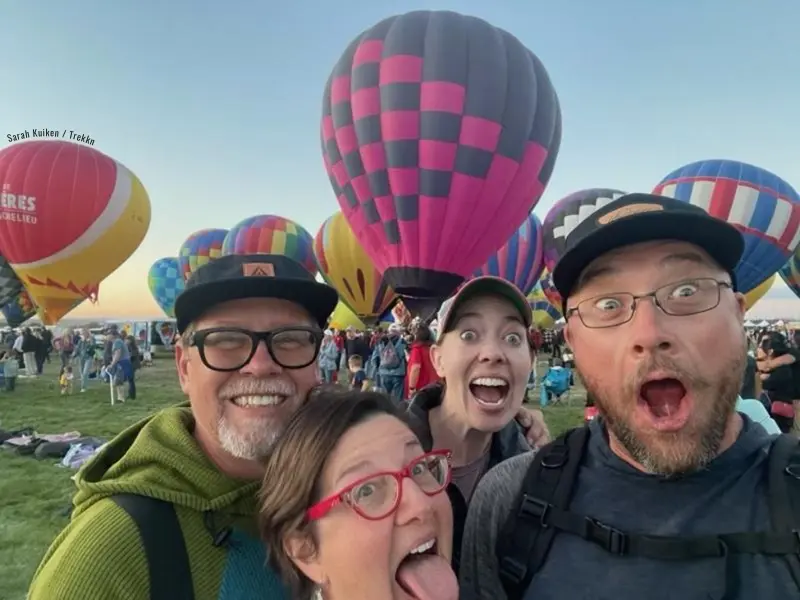
Managing Stress and Anxiety
Stress and anxiety catch up with the best of us, so expect that you’ll have moments. Make a plan for what you’ll do when you’re feeling stressed or anxious before it happens.
Keep a shortlist of people to call, plus whatever helps you come back to yourself when you’re feeling untethered, like breathing exercises or physical grounding techniques.
To me, a big part of this process is trying not to fight your natural rhythms and travel style. For years, I traveled faster than what was really comfortable for me.
It took me a while to realize that I’m happier when I have at least two weeks (depending on the place) to enjoy it, and often far longer than that. Also, sometimes, just answering the question, “Where will I sleep tonight?” is a crazy challenge all its own.
Mental Health Resources on the Road
The post-COVID world has given nomads a lot of virtual resources they can rely on, which has made health care much easier to access.
Check with your insurance provider about how to access health support remotely, perhaps through telehealth visits so you don’t have to source a local doctor.
If you need a mental health professional to talk to, check with virtual therapy providers to see what’s an option for you based on where you are and how often you travel.
There are also Facebook groups and other virtual communities online that cater to full-time travelers, providing support virtually and in person.
Know When You Need Help
One of the things COVID taught me was that I, a die-hard introvert, can definitely spend too much time alone.
I’d never done enough of it to realize that fact until I hit a hard wall of loneliness and realized that I was going to freak out if I didn’t see a friend—or even a casual acquaintance—in real life soon.
If you have a similar mental health “flare-up,” it’s helpful to take note of the signs early so you can ask for help. Sometimes, a virtual game night with friends is all it takes to get you back on track.
Other times, you may need a hard break from the road to reset and decide what you truly want and need.
Listen to your brain and body, and stay alert for signs that you need a bit more social time, even if you’re an introvert.
Humans are social by nature; we rely on daily connection with others. (There’s a reason why solitary confinement is an extreme form of punishment in our prison system!)
Conclusion
Travel can be a wonderful opportunity to improve your mental well-being and expand your personal growth, but it must be handled mindfully.
If you charge blindly into #vanlife, you may not like the results. On the other hand, if you show up prepared and plan for the worst, you’ll be ready to fully enjoy the best of what this lifestyle has to offer.
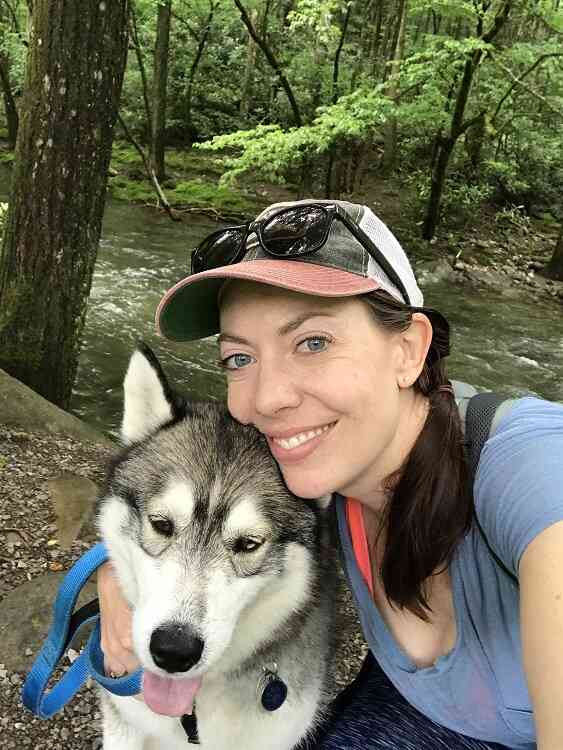
Sarah Kuiken has been a full-time solo traveler for 4 years and counting, but she’s been a solo adventurer for decades. She owns her own copywriting business, Flourish Writing, which she operates from the road. Sarah loves to explore state and national parks with her two dogs, Orion and Piper—wherever they’re allowed, of course. When she’s not whipping up web copy for fellow entrepreneurs, she’s probably out hiking or paddle boarding with the dogs in tow. Learn more about her freelance writing business at FlourishWriting.com.


